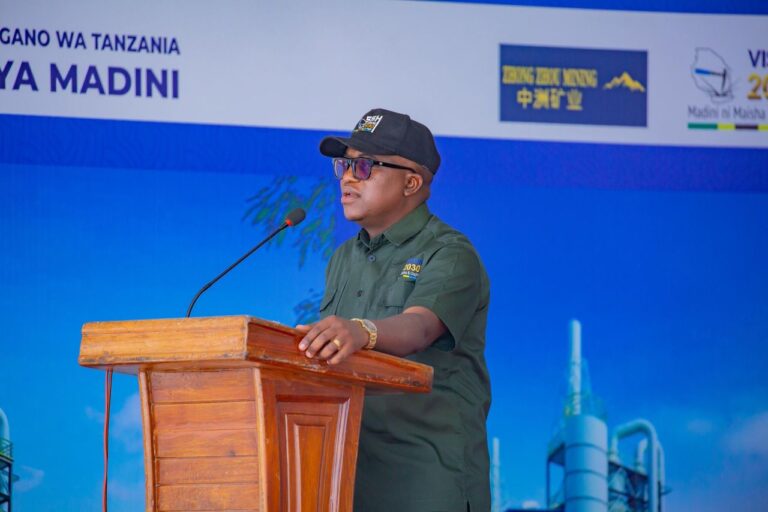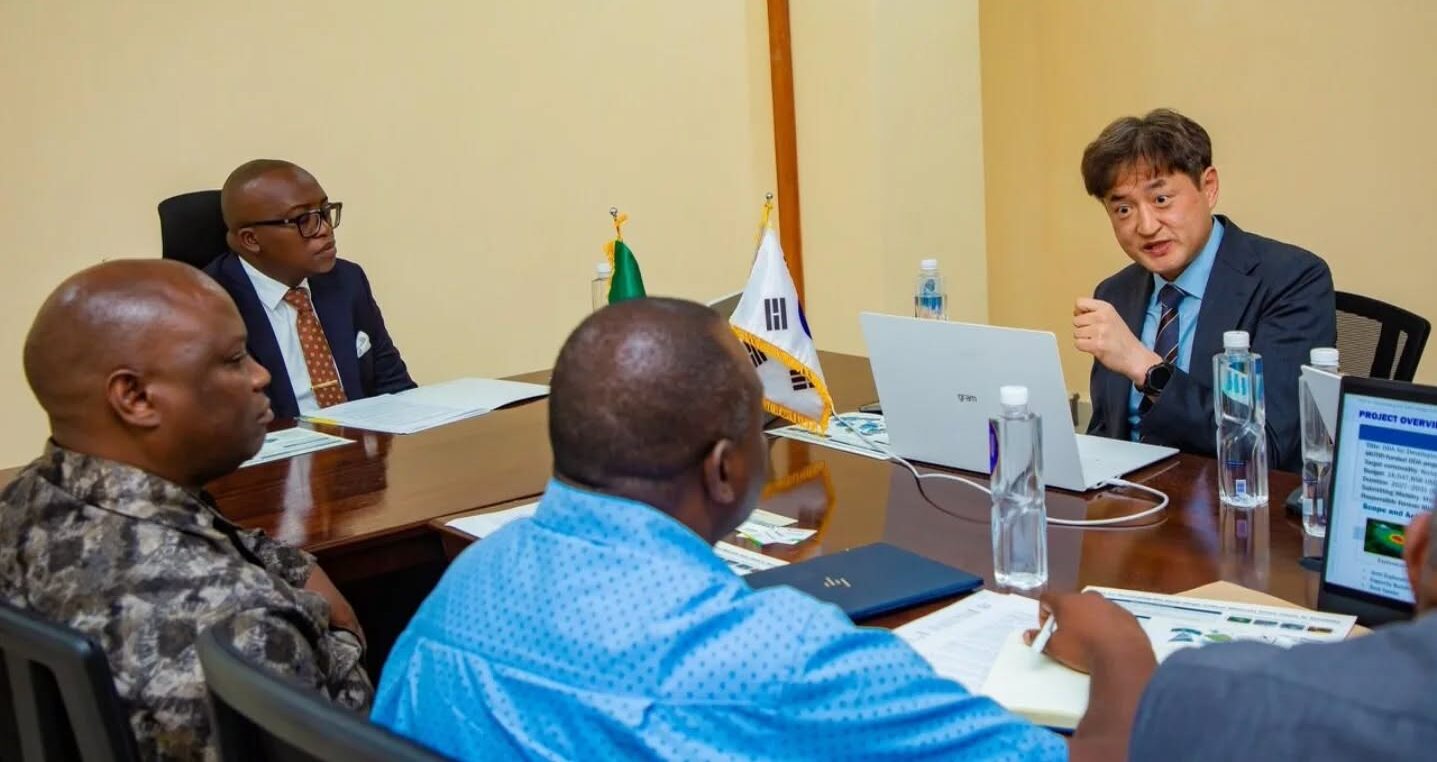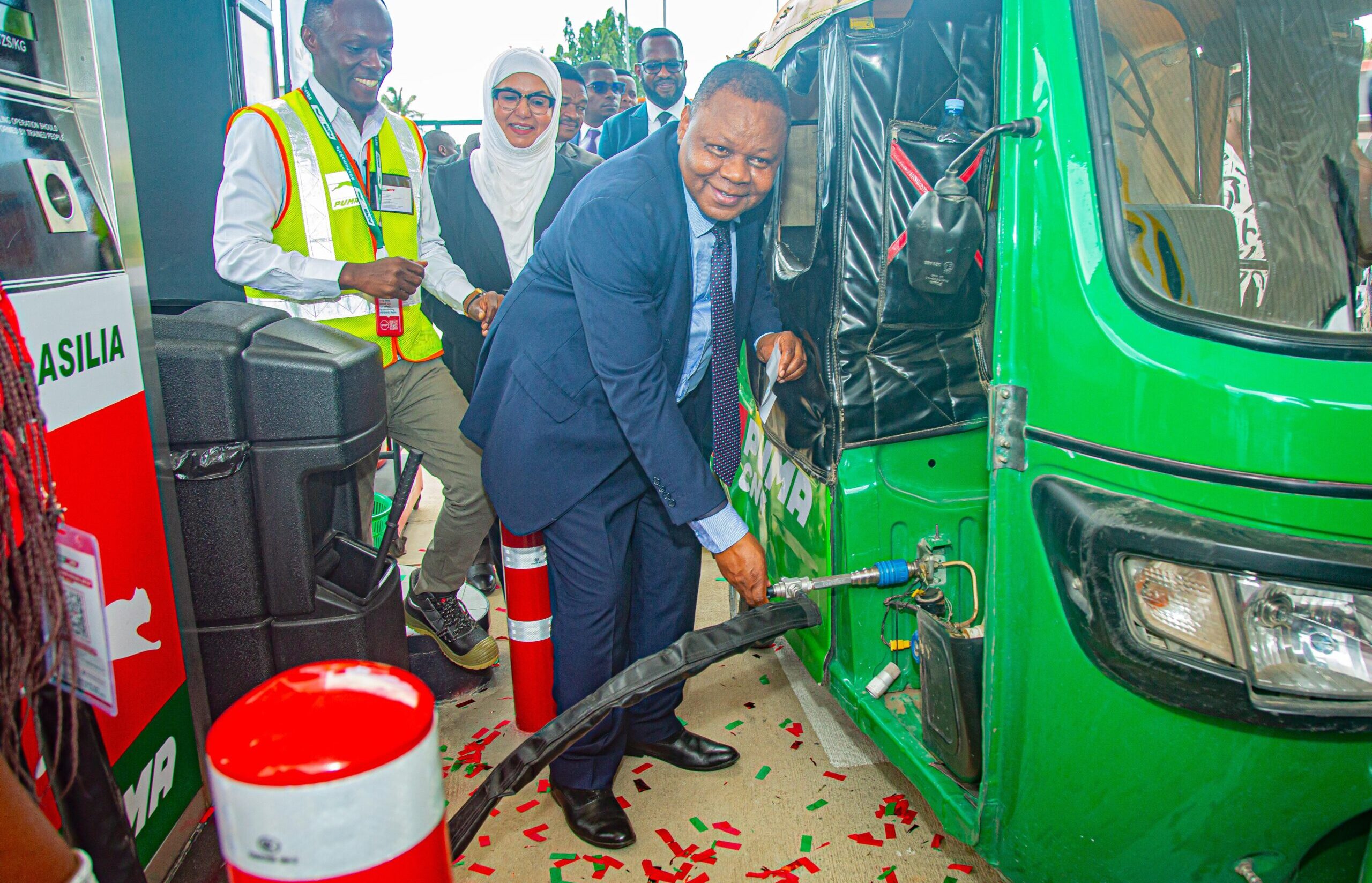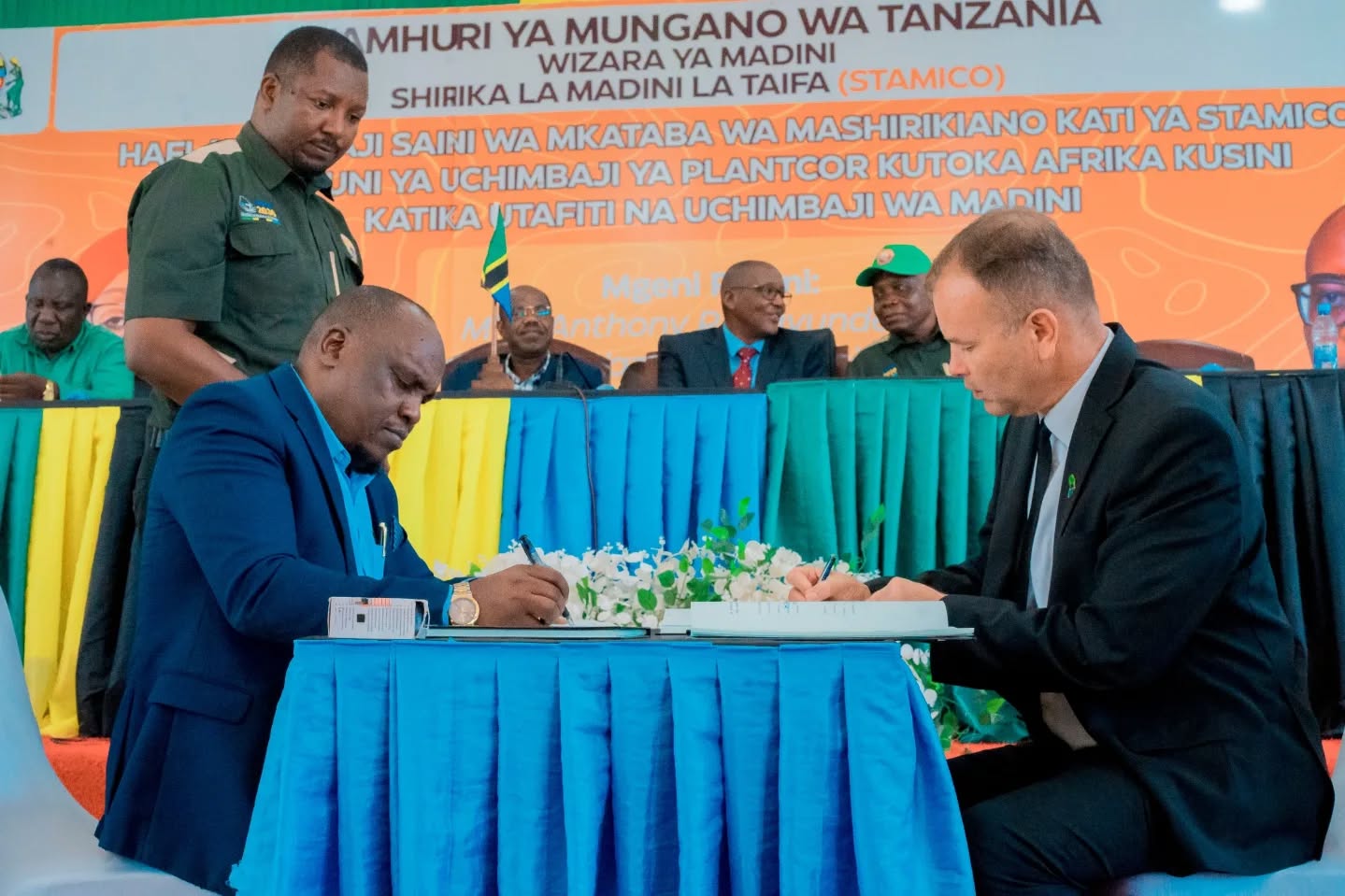Dodoma. Tanzania is accelerating its industrialisation drive by expanding investments in mineral value addition, a move that places the country firmly within the emerging global supply chains for clean energy technologies and electric mobility.
On August 26, 2025, the Minister for Minerals, Anthony Mavunde, laid the foundation stone for a nickel and copper processing plant being constructed by Zhongzhou Mining Co. Ltd at Zamahero in Bahi District, Dodoma Region.
Valued at $15 million, the facility is expected to process about 200,000 tonnes of nickel and copper annually, employ up to 230 Tanzanians, and boost government revenue through taxes and royalties once operational.
Mr Mavunde said the project was a direct response to President Samia Suluhu Hassan’s directive that minerals mined in the country should be refined and processed locally to ensure Tanzanians derive greater benefit.
“The construction of this plant is proof of our resolve to enhance value addition. We want to see Tanzania transform into a nation that produces high-value technology products for the global market,” he said.
The development reflects the government’s wider reforms in the mining sector, which since 2017 have prioritised increased state participation, greater transparency and the localisation of benefits.
The shift has been reinforced under the administration of President Samia, who has emphasised industrialisation and downstream mineral beneficiation as drivers of inclusive growth.
Tanzania is rich in strategic minerals such as nickel, graphite, lithium and rare earths, that are critical for the manufacture of electric vehicle batteries, renewable energy storage systems and modern electronics.
Global demand for these minerals is rising sharply as countries pursue climate commitments and the transition towards low-carbon economies.
By insisting on local processing, Tanzania is seeking not only to capture more value domestically but also to establish itself as a reliable supplier of semi-processed and finished mineral products in regional and global markets.
Industry observers argue that this positioning could enable the country to integrate into global green technology supply chains while also providing the foundation for local industries in battery assembly, electric vehicle production and electronics manufacturing.
The commissioner for Minerals, Dr AbdulRahman Mwanga, stressed that such projects were helping to anchor a sustainable and competitive economy.
“Investments in value addition are building the basis for jobs, revenue, and international competitiveness, taking us closer to our vision of an industrialised Tanzania,” he said.
According to the Ministry of Minerals, Tanzania now hosts eight gold refineries and nine processing plants for other metallic minerals, with five located in Dodoma alone.
This rapid growth is seen as a sign of the government’s determination to diversify beyond gold, which has long dominated the mining sector, and to attract investments into new frontiers of strategic minerals.
For the Bahi District, the Zhongzhou Mining project is expected to be transformative.
District executive director Mwanamvua Muyongo noted that it would place the area on the map of producers of essential technological inputs while stimulating the local economy through direct and indirect employment.
Zhongzhou Mining’s director, Lee Zhong Liang, pledged continued cooperation with the government and surrounding communities, underscoring the importance of partnerships in sustaining such investments.
Analysts note that the rise of local mineral processing plants aligns with Tanzania’s ambitions under the African Continental Free Trade Area (AfCFTA), which opens wider regional markets for value-added products.
Moreover, as global manufacturers seek to secure stable sources of critical minerals, Tanzania’s policy framework, anchored in the 2009 Mineral Policy and strengthened by subsequent reforms, offers an advantage by linking resource exploitation with industrial development.
The nickel and copper plant in Bahi therefore, symbolises more than an industrial investment; it represents Tanzania’s strategic bid to become a regional hub for green economy minerals and a player in shaping the future of clean energy technologies.







